A Wake-Up Call Before Machines Write the Rules
The Silent Empire of Algorithms
It’s 2025. AI isn’t a futuristic sci-fi villain anymore.
It’s your bank loan officer.
It’s your HR department.
It’s your child’s virtual tutor.
And it’s quietly rewriting how decisions are made—faster than most boards can pour their second coffee.
Behind every glowing dashboard and seamless customer experience lies a web of machine learning models, data pipelines, and automated decisions. It’s dazzling. It’s efficient. It’s profitable.
And it’s wildly unregulated in most of the world.
Ethics: Not Just Philosophy, But Profit Protection
Let’s kill the myth:
Ethical AI isn’t charity work. It’s risk management.
The World Economic Forum and OECD have been ringing the alarm bells for years. AI bias isn’t just a social justice issue—it’s a business continuity threat. Biased hiring tools, racially skewed facial recognition, and discriminatory credit scoring have already cost companies billions in lawsuits, regulatory penalties, and PR disasters.
Interestingly, even industries you might not expect are waking up to the need for ethical AI. Take Playamo Online, for instance. Known for its dynamic online casino platform, the company is now exploring AI-driven tools to personalize player experiences while committing to fair play and responsible gaming standards. It’s a rare example of entertainment tech leading by ethical example.
Take the 2023 EU AI Act, for example.
It introduced strict rules on high-risk AI systems.

Think healthcare, finance, education, and law enforcement. Non-compliance? Fines reaching 6% of annual global revenue. That’s not pocket change. That’s the kind of hit that makes shareholders sweat and CEOs scramble.
Meanwhile, in the U.S., the Algorithmic Accountability Act is gaining traction.
In Asia, Singapore’s Model AI Governance Framework sets benchmarks for explainability, fairness, and human oversight.
In short: the regulatory wave is here. And it’s only getting bigger.
The Black Box Problem: What You Can’t See Can Hurt You
Most AI systems today operate like sealed vaults.
You feed them data.
They spit out decisions.
But ask them why they made a decision, and you’ll get the algorithmic equivalent of a shrug.
This “black box” problem isn’t just a technical headache—it’s a legal and ethical landmine.
Regulators are demanding explainability. Consumers are demanding transparency.
If your board can’t explain why your AI rejected a mortgage application or flagged an employee for review, you’re not just failing your users—you’re failing your fiduciary duty.
The Trust Deficit: A Business Killer
Studies from Pew Research Center and Edelman Trust Barometer reveal a chilling reality:
Public trust in AI is plummeting.
People fear surveillance. They fear manipulation. They fear being reduced to data points in someone else’s profit equation.
Without trust, your AI product is dead on arrival.
No one wants to interact with a system that feels rigged or inhuman.
This is why ethical design must move from footnote to headline in every board meeting.
What Leaders Must Do Now
Let’s get practical.
What does “ethical AI by design” actually look like?
1. Adopt Global Best Practices
● Follow OECD and EU AI Act Guidelines
○ Fairness, transparency, and accountability aren’t buzzwords. They’re minimum standards.
● Implement Human-in-the-Loop Systems
○ Automated decisions should always have human oversight, especially in high-stakes scenarios.
2. Build Ethical Governance Structures
● Appoint Chief AI Ethics Officers

○ Not just token roles. Empower them with real authority.
● Create Cross-Functional AI Ethics Committees
○ Include legal, technical, social science, and community representatives.
3. Demand Explainability from Day One
● Audit Algorithms Regularly
○ Use explainable AI (XAI) frameworks to ensure your models aren’t hiding bias.
● Make Ethical Reviews Part of Product Launch Checklists
○ Just like security reviews, ethics should be a non-negotiable release gate.
4. Engage with External Stakeholders
● Collaborate with Civil Society and Academia
○ Transparency builds trust. Independent audits build credibility.
● Communicate AI Limitations Honestly
○ Be upfront about what your AI can’t do, not just what it claims to do.
The Future Is Watching You
In 2025, ethical AI leadership isn’t optional.
It’s the new competitive edge.
Companies that treat ethics as a marketing line will fall.
Companies that embed ethics into every layer of their AI lifecycle will build brands people trust, products people rely on, and systems that serve society—not just shareholders.
So, next time “ethical AI” hits the agenda, don’t let it gather dust under buzzword bingo.
Make it the cornerstone of your legacy.
Because here’s the truth:
Algorithms may write the future.
But humans still write the rules.

